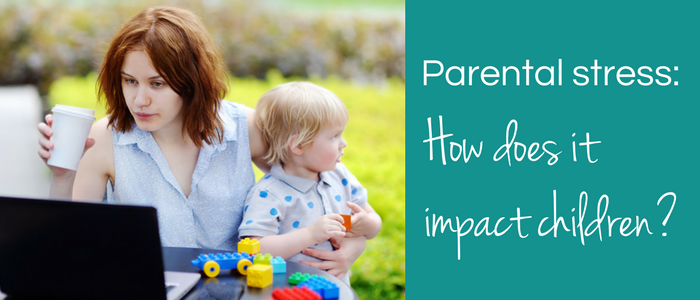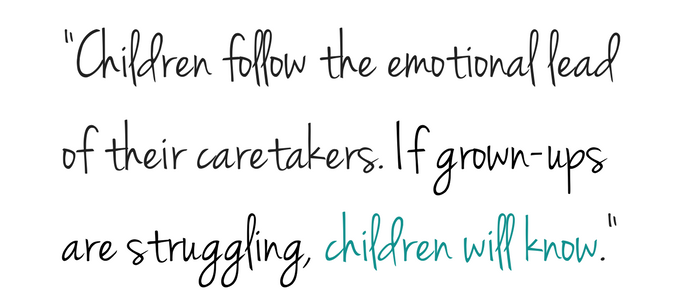How parental stress impacts children
The impact of parental stress on children is a topic that is well-researched by academics. But, when it comes to the practicalities and the impacts, do we, as parents, know the effects our stress is having on our children?

Counselling Directory member, Paula Coles, provides five tips to prevent us passing stress onto our kids.
As parents, we can often face the burden of expected happiness. Many parents feel obliged to showcase social media showreels of their ‘joyous’ parenting, but it’s not always the truth of what’s going on behind closed doors. In fact, many parents will be ‘managing’ the stress of parenting with unhealthy strategies such as excessive smoking or alcohol consumption, shouting, withdrawing, overspending or emotional eating.
But, it’s these unhealthy methods of coping with stress that we could be passing onto our children.

Author Robert Fulghum once said: “Don’t worry that children never listen to you; worry that they are always watching you”. In other words, children follow the emotional lead of their caretakers; if grown-ups are struggling, children will know. Although unhelpful parenting patterns are not inevitable, awareness creates change and we can see it as a helpful motivation to seek support.
Parents often enter the counselling room anxious not only about their own stress but also its impact on their children; it’s an exhausting ‘two for the price of one’.

Stressed children may withdraw, become quiet, show aggression, develop tics, have interrupted sleep, bed wet or have physical symptoms (headaches, chest pains, tummy pain, fatigue). Confusingly though, stress isn’t the only causal factor for all of these, and physical illness should not be ruled out.
Carl Jung believed that therapeutic work with children was not as useful as working with the adults in their lives. Of course, children experiencing distress can benefit from talking about their problems to trained professionals but, if the cause of their problems is the stress that their parents are facing, it seems that the best way to prevent passing stress onto your children is to better manage it yourself.
So, what can we do?
1. Don’t get bogged down in guilt.
As a parent, you take the emotional lead in the family system – and that’s a positive, as it means you can create change.
“I have the ability to change this by getting the help I deserve”, is much more mobilising. Speak to your GP or psychotherapist. You deserve help and your children will almost inevitably benefit.
2. Notice behaviours in your child that mirror your own.
If you are aware you have a mental health problem with a genetic basis, your child may show similar behaviours to you. This can be particularly upsetting and makes it extremely important that you ask for help from professionals in finding the way forward for you and your child.
3. Endeavour to keep adult problems away from children.
They don’t have the intellectual or emotional resources to understand money problems or relationship conflict. Children need to feel safe and never want to hear you criticise their other parent.
4. Tell them when you get it wrong.
Children have a lot invested in helping you to parent well. Telling them you’re sorry or explaining how you’re feeling can be a reassurance. “I’ve been snappy with you, I’m sorry. I’m working to sort it out” takes away feelings of responsibility from them.
If parents change the way they manage stress then it relieves children from the potential of trying to take care of their parent’s emotions and frees them to be children.
5. Seek support
If you can’t find support from extended family or friends, it may be worth finding local parenting support groups. You can also explore books such as Naomi Stadlen’s ‘What mothers do, especially when it looks like nothing’, which recognises how hard mothering can be.

Find a therapist dealing with Stress
All therapists are verified professionals





